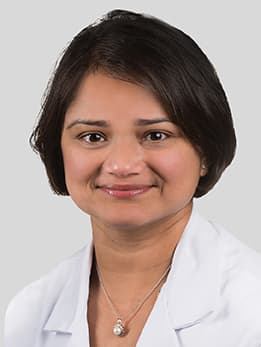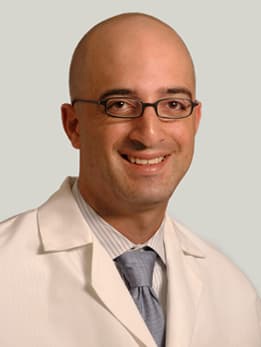Understanding primary sclerosing cholangitis: Expert Q&A

Is primary sclerosing cholangitis (PSC) rare?
Yes, only about one in 10,000 people have PSC, a chronic disease that affects the bile ducts in the liver.
Because the disease is so uncommon, many hospitals do not treat a lot of people with PSC. However, the University of Chicago Medicine is a major referral center for patients with PSC and other types of liver disease.
Is primary sclerosing cholangitis hereditary?
The exact cause of PSC is not known, although experts believe that PSC may be caused by a combination of genetic and environmental factors. People with PSC have an overactive immune system, which can be triggered by exposure to bacteria or other elements in the environment.
How fast does PSC progress?
In people with PSC, the bile ducts become scarred and inflamed, which causes bile to collect in the liver. This damages the liver so that it no longer functions as well as it should. Typically, this process happens fairly slowly over several years.
How long can you live with primary sclerosing cholangitis?
Most people are diagnosed with PSC between ages 30 and 40, although the disease affects people of all ages.
If you have been told you have PSC, you may develop cirrhosis (scarring in the liver) and possibly liver failure. At that point, you may be a candidate for a liver transplant, which may extend and improve the quality of your life.
Can primary sclerosing cholangitis be misdiagnosed?
Diagnosing PSC requires expertise, so it’s possible that you may have PSC for many years before it is accurately diagnosed. One reason is that you may have PSC without any symptoms — just certain signs in your bloodwork. That is why it is important to go to a center like the one at UChicago Medicine that has extensive experience diagnosing and managing patients with liver diseases like PSC.
Is there a cure for primary sclerosing cholangitis?
There is no real cure for PSC, although it can be managed. A liver transplant can help people who have serious complications from PSC. For a small number of patients, PSC may recur in the new liver.
What is the connection between PSC and ulcerative colitis?
About two-thirds of people with PSC have ulcerative colitis, a type of inflammatory bowel disease (IBD). People with PSC also may have another type of IBD called Crohn’s disease.
It’s not entirely clear why so many people with PSC also have IBD. Researchers at UChicago Medicine are investigating the interaction between environmental triggers, the immune system and the gut microbiome (the living organisms in the digestive tract) to help understand the connection between the two diseases.
What is known is that people with PSC and ulcerative colitis have inflammation throughout their colon. They also have a higher risk for cancer in the colon, bile duct and gallbladder.
At the IBD Center and Center for Liver Diseases at UChicago Medicine, our specialists have extensive experience managing both conditions and can help people with PSC and IBD manage their special health risks.
What foods should you avoid if you have PSC?
Although there is no specific diet for people with PSC, we recommend a diet with plenty of fruits and vegetables, low-fat proteins and whole grains, specifically the Mediterranean diet. Your liver specialist may recommend other dietary changes that can help protect your liver. Coffee is also good for the liver and can decrease the risk of fatty liver and scarring.
Can you drink alcohol if you have primary sclerosing cholangitis?
It’s best to avoid alcohol if you have PSC. Alcohol can raise your risk for developing cirrhosis if you already have inflammation in your liver.
Can you live a normal life with PSC?
Some people with PSC have no symptoms early on in their diagnosis, allowing them to live normal lives. But as the disease progresses, their quality of life may be affected by symptoms like abdominal pain, itching, chills, fatigue and jaundice (yellowing of the skin). These ongoing symptoms also can affect their emotional health.
At UChicago Medicine, our liver specialists and other members of the care team offer expertise and support to help you live as normal a life as possible with PSC.

Sonali Paul, MD
As a hepatologist, Sonali Paul, MD, specializes in the care of patients with liver disease. She specializes in treatment for hepatitis B, autoimmune and cholestatic liver diseases and liver transplantation.
See Dr. Paul's physician profile
Joel Pekow, MD
Joel Pekow, MD, specializes in the treatment of digestive disorders, with a particular focus on inflammatory bowel disease (IBD).
See Dr. Pekow's physician profile